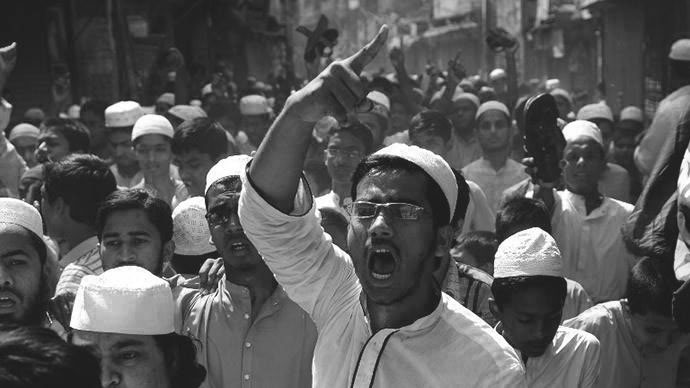
The streets of Dhaka, Bangladesh's capital city, have been the home to uprisings during the past two months. Some Bengali people want justice for those playing a role in the war crime tribunals from the 1971 War of Independence. After the tribunal sentenced Delwar Hossain Sayedee, a Bangladeshi Islamist party leader, to death, people took to the streets, ensuing riots.
This story has quickly become a conflict over the definition of blasphemy as rioters block freeways and set fire to vehicles and buildings. Activists are calling for the death penalty for all those who are believed to have insulted Islam.
While Bangladesh has no anti-blasphemy laws, there are political movements like the Protectors of Islam (Hifazat-e-Islam) demanding them. They are said to manly target the area's online activists dubbed "the Shahbag Square atheist bloggers."
Another religious fundamentalist faction that supports the Hifazat-e-Islam is in opposition of the country's war crimes tribunal. This faction also supports the request for anti-blasphemy laws. So far, 15 people have been reported as deceased due to the street riots.
One self-proclaimed atheist blogger and architect by trade, Ahmed Rajib Haider, has died during the course of the current Bangladesh riots. Hacked to death by a militant group early in the year, he was found lifeless next to his laptop. Haider was one of the known Shahbag protest's central organizers.
Asif Mohiuddin and three other secular bloggers were arrested. Before his arrest and the death of Haider, Mohiuddin was stabbed by several unidentified men in Dhaka after leaving work.
Starting with just a few stick-carrying protesters, the police now estimate the number of demonstrators to be anywhere from 100,000 to 200,000. The sheer amount of people asking for harsher punishments makes the freedom of speech balancing act difficult for Bangladesh authorities who are trying to preserve the nation's official secular constitution while restoring order and peace on the streets.
Many of the atheist bloggers who continue to write are trying to encourage Bangladesh's secular youth by harnessing Internet outlets and social media platforms to coordinate those who want freedom of speech.
